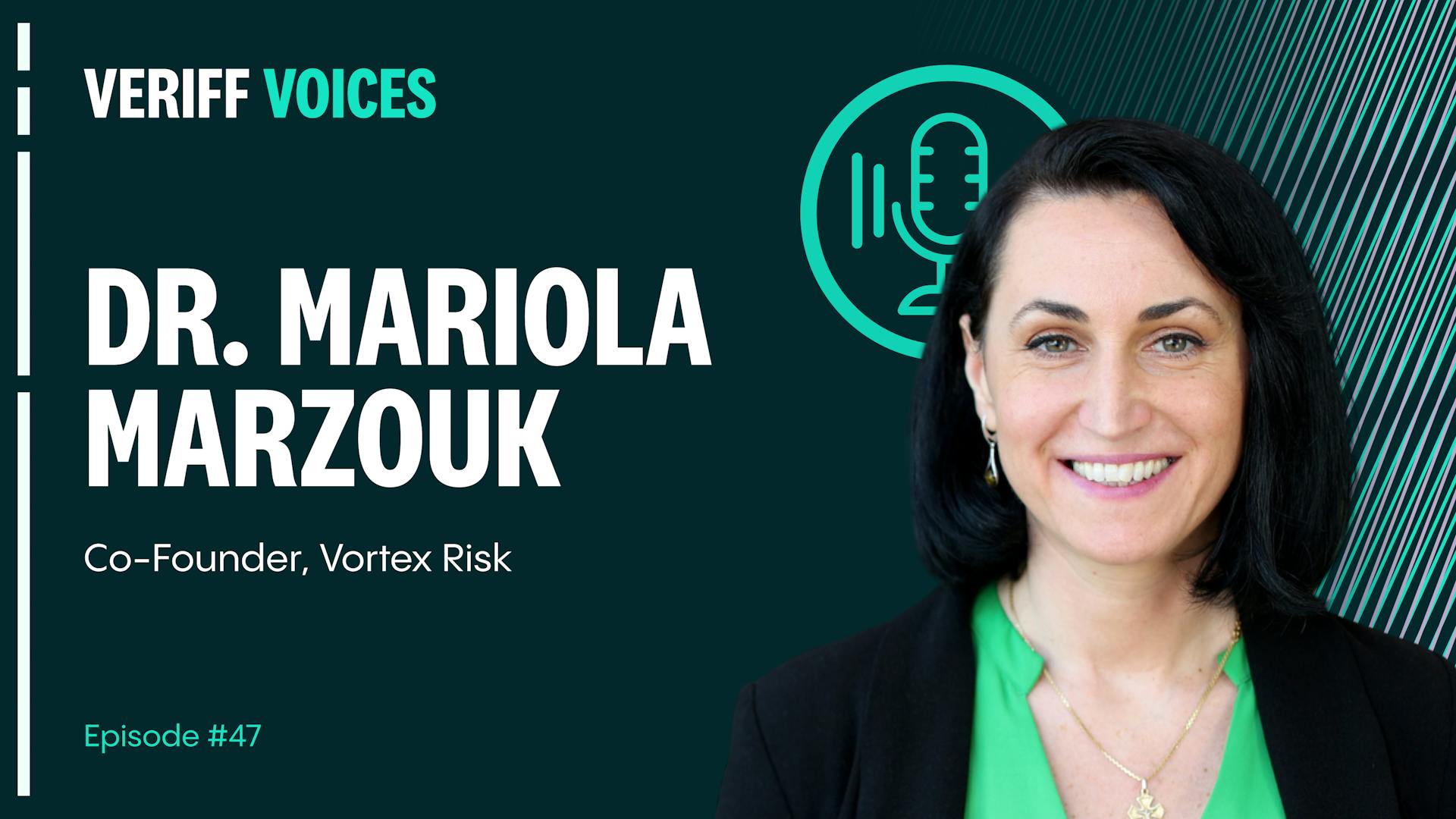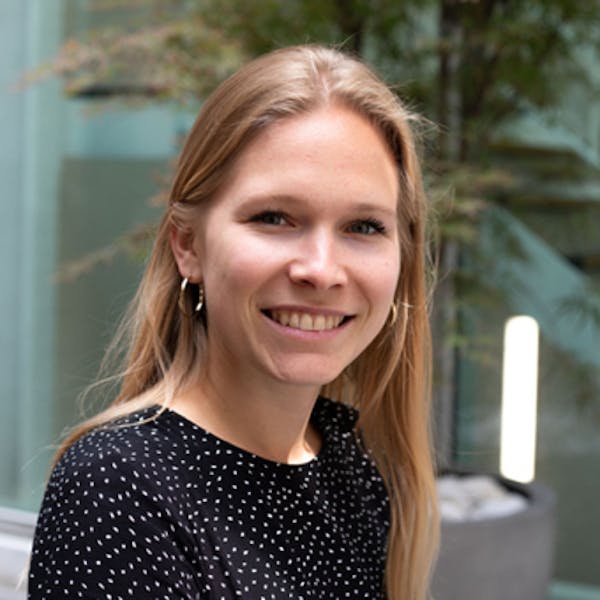Why the AML system is failing and what needs to change
In this episode of Veriff Voices, we sat down with Dr Mariola Marzouk, Co-founder of Vortex Risk and a longtime voice in economic crime prevention. But this wasn’t your standard AML conversation.


Lottie Owen Jones
Listen to full conversation with Mariola now!
It offered a sharp, unflinching examination of the gap between regulation and real-world outcomes—highlighting why, despite decades of policy efforts, we continue to struggle in making meaningful progress against financially driven crimes like human smuggling, drug trafficking, corruption, fraud, and more.
As Dr. Marzouk puts it, “The current approaches or current understanding of money laundering problems are not robust enough to help us detect it, because criminals are frankly very rationally thinking risk-averse criminals…and we don’t catch anyone.”
The risk-based regime that’s lost its way
We’ve spent the past 30 years layering AML regulations across jurisdictions, driven largely by the Financial Action Task Force (FATF). But are these frameworks doing what they were designed to do?
“The regulations are not bad. They become bad when we are constantly plastering one on top of the other without considering the effect it has on the legitimate economy,” Marzouk says.
And the consequences are increasingly visible. Small and medium-sized businesses—without the resources or awareness to pre-emptively “design” for AML compliance—often get caught in a net designed for criminals. “They just come up with ideas and they start working. And in the meantime, they start triggering some red flags that are then very rudimentarily policed.”
Worse yet, enforcement is fragmented. Law enforcement lacks the time, technology, or training to handle these cases effectively. Regulators focus on whether institutions follow the rules—not whether the rules actually work. Meanwhile, private actors—from consultancies to RegTechs—step in to fill the gap, all with different incentives. As Marzouk puts it: “It becomes a problem when those agendas are not aligned.”
De-banking: a system-level side effect
This flawed system is producing real-world casualties.
Dr. Marzouk points to the rise in debanking: “It’s just now that entities are starting to report this problem.” Citing examples like church choirs and charity groups being debanked, she notes, “They had their bank account frozen and they can’t pay for electricity bills, for water, for rent, and then basically that's it, gone.”
Financial institutions are stuck between pressure to comply and the cost of doing so. “They are not profitable. So why on earth would you keep them? I'm a business, I need to make business decisions. Can you fault them for this?”
Is RegTech part of the problem?
While RegTech emerged as a beacon of hope in the AML space, it hasn’t quite delivered on the promise of crime detection.
“If the purpose is to comply with the regulations, then yes… But if the purpose is to detect money laundering and prevent criminality, then it's not fit for purpose,” says Marzouk.
Why? Because RegTechs are often caught in the same web of regulatory fear. “They are incentivized to file SARs, not to find money launderers.”
Many of these companies claim they’re here to fight financial crime—but Marzouk calls that out too: “None of them say we are here to help you comply with the regulations. No, all of them say we are here to help you detect, prevent financial crimes. Right? But that's not what you're doing.”
In fact, she argues, we’re using the wrong language entirely: “There is no such thing as financial crimes. Right? It's economic crimes… What’s financial crime? Where did they get this term from?”
Can AI fix it?
AI is flooding into compliance tech—but it’s not the silver bullet people hope for. Not unless the goals change.
“If AI is fully focused on strictly obeying by these rules because that’s what banks buy… well, then innovation is very limited there.”
To make a dent in actual crime, we need to rethink how we apply the tech. “Let it challenge, and feel that they can challenge. That doesn’t exist.”
AI can accelerate tasks, but if it's running on flawed assumptions about how laundering works, “we are not going to find anyone because we are not understanding the money laundering.”
So, what now?
Dr. Marzouk offers a few bold ideas on what actually needs to change:
- Ditch the vague language. “Maybe the regulator should be splitting the way they describe—or maybe stop using the term financial crime—because it’s really highly confusing.”
- Reframe economic crimes as the enabler. “You can’t solve one problem without solving the other… Money laundering is not visible. It doesn’t elicit this emotional response. But it’s the engine behind everything else.”
- Invest in understanding. “Let’s study how money laundering is conducted in reality and then we can put better AML laws… But right now, lifting some of the regulations… that would enable creativity in the industry—that’s the right approach to go.”
And maybe most powerfully, she reminds us what’s at stake when we treat AML like a process rather than a protection.
“When you talk to people about money laundering, they feel detached from it… But if you ask a person on the street… they normalize this problem… The blood on the streets—yes, but where that blood came from? Someone paid.”
Explore more
Get the latest from Veriff. Subscribe to our newsletter
Veriff will only use the information you provide to share blog updates.
You can unsubscribe at any time. Read our privacy terms.



